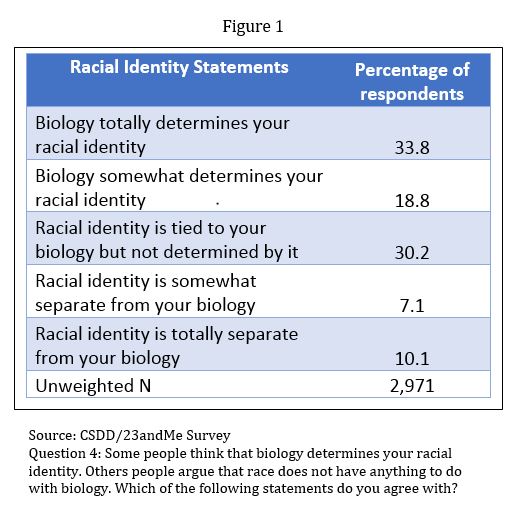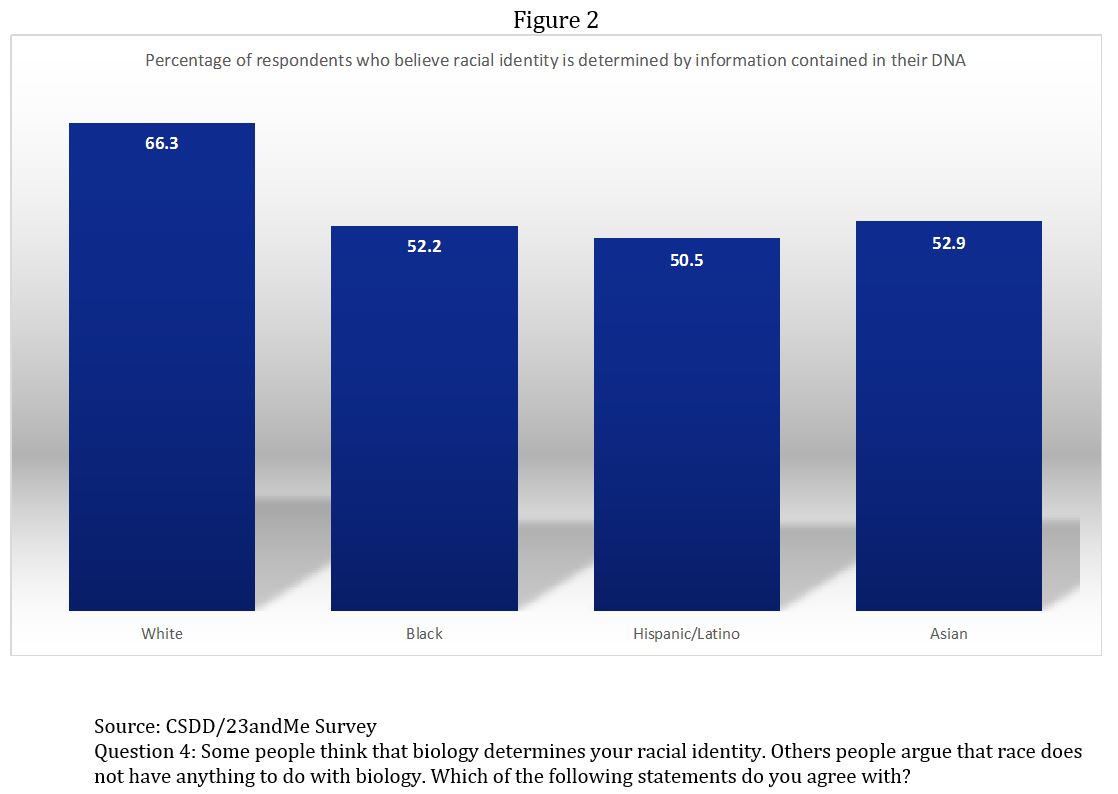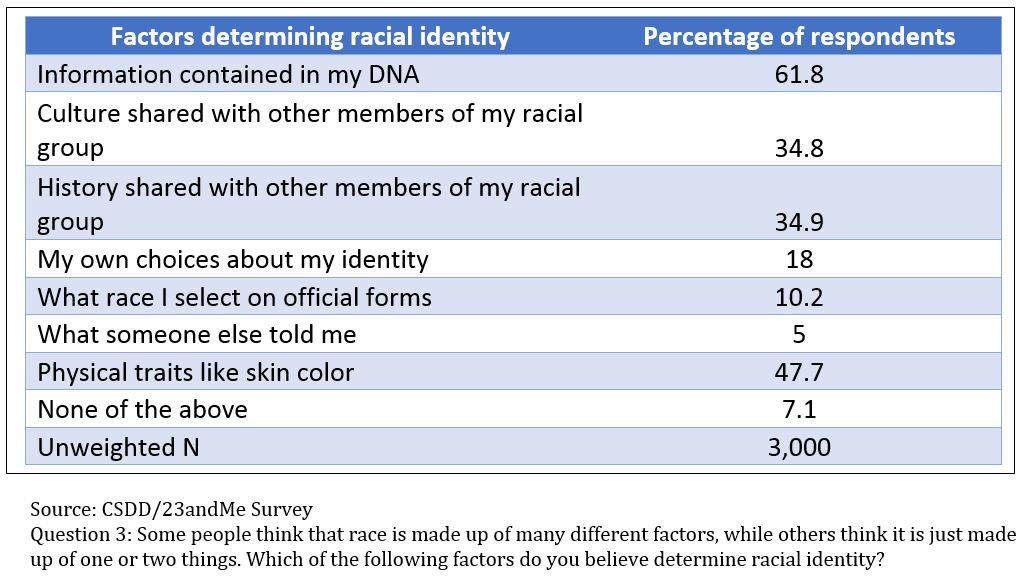CSDD & 23andMe Race and Genomics Survey
The First-Ever National Survey on Race and Genetics Finds Americans Have a Nuanced Understanding of Race
Poll Conducted by Northwestern’s Center for the Study of Diversity and Democracy and 23andMe Finds Attitudes about Race and Genetics are Not so Black and White
August 17, 2018
By Alvin B. Tillery, Jr., Director
Despite a belief that race relations are getting worse, a majority of Americans agree that someone’s racial identity is not hard-wired into their DNA. Indeed, 51 percent of the 3000respondents to a poll jointly conducted by the Center for the Study of Diversity and Democracy’s(CSDD) and 23andMethinkthat race is separate from biology, while only 34 percent said that they believe biology “totally” determines racial identity.Thesurvey research firm YouGov collected the data for the CSDD/23andMe Survey using an internet-based sample.The respondents were invited to participate in the survey between May 29 and June 5, 2018. The 3000 respondents were a nationally representative sample of 1,500 adults 18 years or older, plus over samples of 500 each of Asian American, African American, and Latino American individuals. The margin of error for theDespite a belief that race relations are getting worse, a majority of Americans agree that someone’s racial identity is not hard-wired into their DNA. Indeed, 51 percent of the 3000 respondents to a poll jointly conducted by the Center for the Study of Diversity and Democracy’s (CSDD) and 23andMe thing that race is separate from biology, while only 34 percent said that they believe biology “totally” determines racial identity.
The survey research firm, YouGov, collected the data for the CSDD/23andMe Survey using an internet-based sample. The respondents were invited to participate in the survey between May 29 and June 5, 2018. The 3000 respondents were a nationally representative sample of 1,500 adults 18 years or older, plus over samples of 500 each of Asian American, African American, and Latino American individuals. The margin of error for the survey is +/- 3%.
While the overall results of the survey show that most Americans agree that genetics are not determinative of racial identity, there are important differences by subgroup. Individuals who identify as white were significantly more likely to think that information contained in their DNA is a factor determining racial identity. Indeed, 66 percent of whites—versus 53 percent of Asian Americans, 52 percent of African Americans, and 51 percent of Latino Americans—believe that their racial identity is “determined by information contained in their DNA.”
Beliefs about the best ways to determine racial identity:
The respondents to the CSDD/23andMe survey also had some very clear ideas about the roles that skin color and culture should play in determining racial identities in the United States. As Figure 3 illustrates, with 48 percent of the respondents believe that skin color is the best way to determine racial identity. Thirty-five percent believe that culture plays an important role in determining racial identity. About an equal number of respondents, 34 percent, see family history as the most important factor determining a person’s race. Finally, 18 percent of the respondents believed that race is determined by an individual’s “personal choices” about their identity.
One noteworthy finding is that Latino respondents—the most admixed population—were more likely than other Americans to reject the idea that skin color determines racial identity. Also, Asian American respondents were significantly more likely than the rest of the sample to say that “shared culture” was a factor in determining racial identity.
About the Center for the Study of Diversity and Democracy:
The mission of the Center for the Study of Diversity and Democracy is to stimulate research, dialogue, and civic engagement about the relationship between diversity and democratic politics. Our intellectual agenda focuses on three core questions: What governing institutions are best at managing differences based on race, ethnicity, gender, sexual orientation, and religion and promoting equal citizenship in diverse democracies? What are the attitudinal bases of group solidarity and intergroup tolerance in diverse democracies? What can governments, non-governmental organizations, and corporations do to reduce the socioeconomic inequalities that exist between identity-based groups in diverse democracies?
Contact Us: mailto:CSDD@northwestern.edu
Follow Us on Twitter: @CSDDatNU
Follow Our Director on Twitter: @AlvinBTilleryJr



